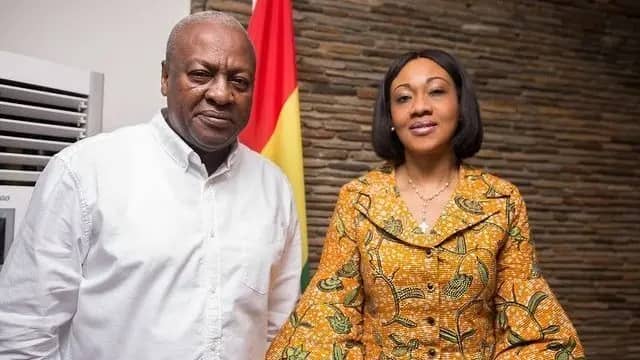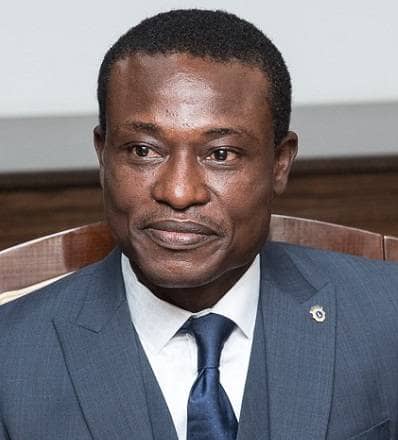Investigative Desk Report
Mounting political pressure and a noticeable shift in state security posture have raised serious questions about the independence and personal safety of Ghana’s Electoral Commission (EC) Chairperson, Jean Mensa.
According to sources familiar with the matter, two police officers have recently been assigned to her residence. Of the two, only one is designated as her bodyguard for public engagements, and that officer is not scheduled to commence duties until next week. This gap in protection has triggered concerns at a time of escalating political hostilities directed toward the EC leadership.
The development comes in the wake of an unsubstantiated public attack by Johnson Asiedu Nketiah, National Chairman of the opposition National Democratic Congress (NDC), who accused the EC of partisanship and incompetence. Nketiah’s comments have reignited longstanding tensions between the NDC and the Electoral Commission—a relationship that has historically been fraught with mutual suspicion.
Critics now point to what they describe as a deliberate downgrading of the EC Chairperson’s security classification by elements within the Presidency, possibly with the consent of President Nana Addo Dankwa Akufo-Addo. This shift is especially troubling given the recent statements by the NPP National Chairman, Stephen Ntim, who has reportedly intensified public calls for the dismissal of Jean Mensa and her deputies.
A History of Political Pressure on the EC
This is not the first time Ghana’s Electoral Commission has found itself at the center of political controversy. In 2015, then-EC Chairperson Dr. Kwadwo Afari-Gyan faced intense criticism from the New Patriotic Party following the disputed 2012 presidential election. The NPP filed an election petition at the Supreme Court, which, although it upheld the election result, exposed administrative lapses that fueled public debate for months.
In 2018, President Akufo-Addo controversially removed then-EC Chairperson Charlotte Osei and her two deputies, citing “misbehavior and incompetence” following a report by the Chief Justice. The move drew criticism from civil society and international observers, who warned that the dismissal risked undermining the Commission’s independence.
Jean Mensa, appointed shortly thereafter, has faced persistent opposition from the NDC, especially regarding the compilation of a new voters’ register ahead of the 2020 general elections. Though the election was largely deemed credible by observers, the NDC rejected the results and boycotted the presidential inauguration, further souring relations with the Commission.
Current Implications
Security analysts and democracy advocates argue that the current security downgrade must be seen in the context of this long-standing pattern of political interference. They warn that it sets a dangerous precedent, especially as Ghana prepares for its 2024 general elections.
“The independence of the Electoral Commission is not just a constitutional requirement—it is a safeguard for peace and democracy,” said Kwesi Prempeh, Executive Director of the Centre for Democratic Development (CDD-Ghana). “If the EC Chairperson is not adequately protected amid political threats, it sends a signal that state institutions can be bullied into submission.”
The Electoral Commission has yet to release an official statement on the matter. Meanwhile, civil society organizations are calling for full transparency on the security arrangements for the EC Chairperson and for assurances from the government that the Commission will be allowed to operate without interference.
As Ghana approaches a pivotal election cycle, the integrity and independence of the EC will remain under intense scrutiny—both at home and abroad.



